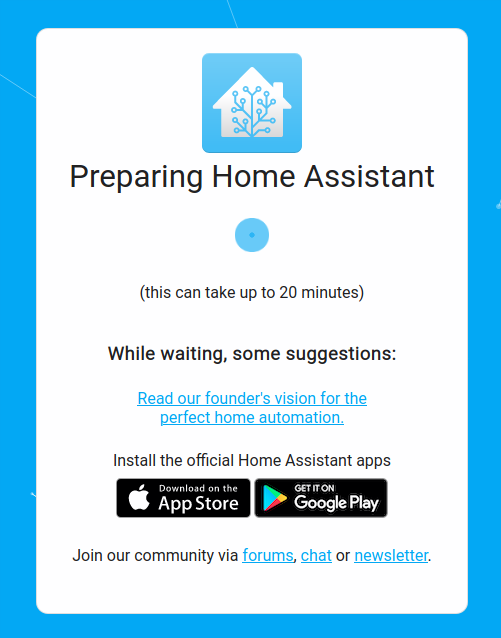Object type requires hosted I/O
I have a reoccurring issue with my Home Assistant VM on ESXi. After the host is powered off ungracefully the VM will not power on, it errors:

The VMDK is version 6.2 and ESXi version 6.7.
tklaassens workaround
I have been using Tim’s workaround for too long:
SSH into the ESX host.
Run the following commands:
[josh@esxi:~] vmkfstools -x check /vmfs/volumes/1b0d5392-52f42ee8/hass/haos_ova-6.2.vmdk
Disk needs repair.
[josh@esxi:~] vmkfstools -x repair /vmfs/volumes/1b0d5392-52f42ee8/hass/haos_ova-6.2.vmdk
Disk was successfully repaired.
TriplusTutorials fix
This post claims to fix it permanently: Running Hass.IO & Hass OS on VMWare ESXI 7.0
Let’s go
I have recently upgraded ESXi from 6.7 to 7.0 so let’s reinstall haos.
-
Download the latest version of haos from https://github.com/home-assistant/operating-system/releases.
The version I’m downloading is
haos_ova-10.0.vmdk.zip -
Extract the VMDK and upload it to your ESXi datastore (e.g. datastore3).
-
Enable SSH on the host and locate the VMDK.
[josh@esxi:~] cd /vmfs/volumes/ [josh@esxi:/vmfs/volumes] ls datastore3 vmrun [josh@esxi:/vmfs/volumes] ls ./datastore3 haos_ova-10.0.vmdk -
Clone the virtualdisk to the permanent datastore (e.g. from datastore3 to vmrun)
[josh@esxi:/vmfs/volumes] mkdir ./vmrun/haos-10 [josh@esxi:/vmfs/volumes] vmkfstools -i ./datastore3/haos_ova-10.0.vmdk ./vmrun/haos-10/haos.vmdk Destination disk format: Thin Cloning disk '.datastore3/haos_ova-10.0.vmdk'... Clone: 100% done. -
Create a new virtual machine
-
Select a name and guest OS
- Name:
haos-10 - Compatibility: ESXi 7.0 U2 virtual machine
- Guest OS family: Linux
- Guest OS version: Other 5.x or later Linux (64-bit)
- Name:
-
Select storage
Datastore:
vmrun -
Customise settings
Virtual Hardware
- CPU: 4
- Cores per Socket: 2
- Memory: 16 GB
- Hard disk 1: remove
- Add hard disk -> Existing Hard Disk:
vmrun/haos-10/haos.vmdk - Network Adapter 1:
107 IoT - Adaptor Type :E1000e
- CD/DVD Drive 1: remove
- SATA Controller: remove
VM Options
- Boot Options -> Enable UEFI secure boot: uncheck
Table 1: Sumary of Virtual Machine | Hardware | Configuration | | ————————- | ——————————— | | Name |
haos-10| | Datastore |vmrun| | Guest OS name | Other 5.x or later Linux (64-bit) | | Compatibility | ESXi 7.0 U2 virtual machine | | vCPUs | 4 | | Memory | 16 GB | | Network adapters | 1 | | Network adapter 1 network |107 LOL-CATS| | Network adapter 1 type | E1000e | | IDE controller 0 | IDE 0 | | IDE controller 1 | IDE 1 | | SCSI controller 0 | VMware Paravirtual | | Hard disk 1 | | - Capacity | 1GB | | - Datastore |[vmrun] haos-10/| | - Mode | Dependent | | - Provisioning | Thick provisioned, lazily zeroed | | - Controller | SCSI controller 0 : 0 | | USB controller 1 | USB 2.0 | -
Boot the VM

-
Complete the setup process
-
Create a backup within Home Assistant Settings -> System -> Backup: Create Backup
-
Take snapshot of the VM
-
play
